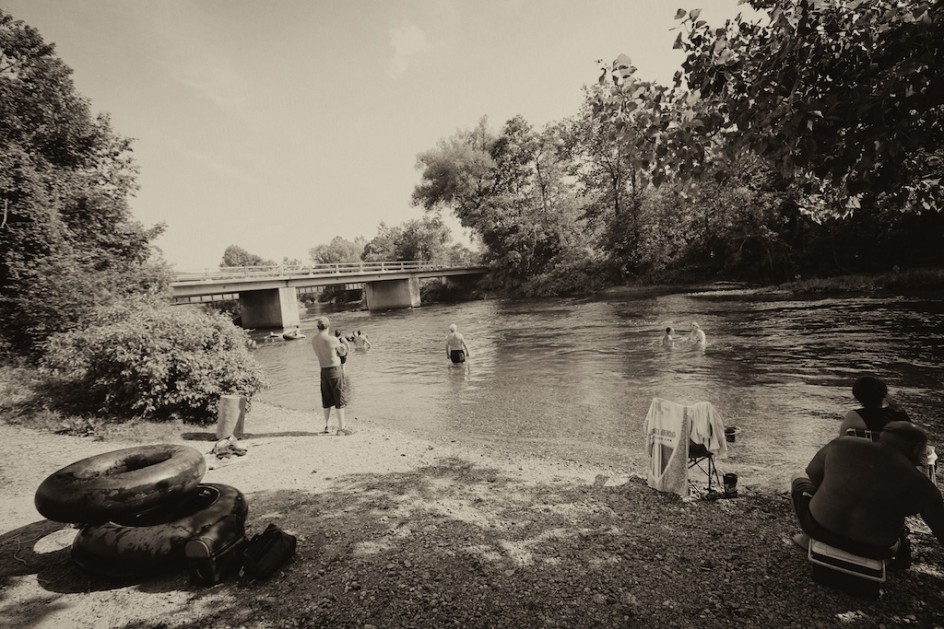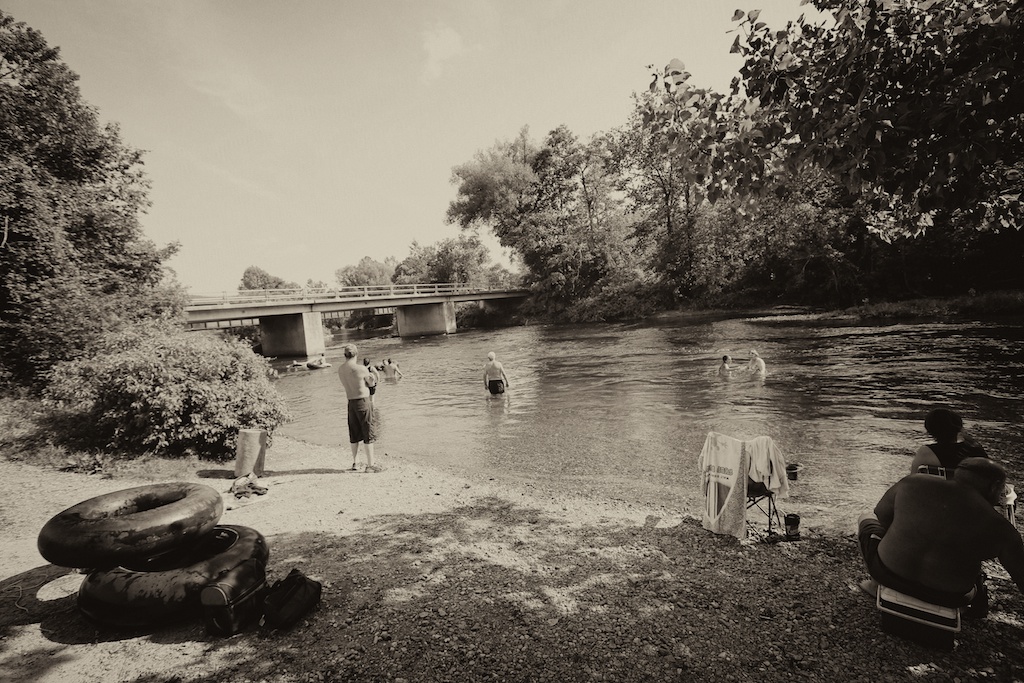
The swimming hole has been a fixture of rural life for many years in America, and it has changed from Mark Twain’s time to this – there were swimming holes all over the place in “Huckleberry Finn.” Our lives have changed, our country has changed, and this kind of access, informality and community has become rare in tense, lawyer-driven, liability-obsessed America. We go, like many local people, to Pooks, a swimming hole maintained by a farmer of that name for the benefit of his neighbors and fellow townspeople.
Pook keeps a path open for cars, we park right next to his cornfields, if you didn’t know where it was, you would sail right past it.
Like everything else, going to swim has become complex in the Corporate Nation. Corporations don’t give things away for free, they charge for everything, their lawyers tremble at the thought of unsupervised people having fun with signing documents and releases.
Many beaches and lakes are polluted, crowded, or charge for access, many more have been closed off to all but the rich people who live on them, there are all sorts of regulations relating to safety, conduct and health. Thousands of people sit on towels and umbrellas right next to one another, few of them know each other. Paid workers take care of the beaches, maintain them, and there are often traffic jams, disorderly people and other problems involved in going to the shore.
Rural life is very different, Pooks Swimming Hole is very different, it is closer to Huck Finn than to modern, fearful and intense America. There are no lifeguards there, there is a small area for parking. Neighbors and local residents keep a sharp eye out for litterers or people who are too loud or sloppy. It is quiet there, in rural life the quiet is respected. We all make sure it is clean and well maintained so that Pook will keep it open, he could shut it in a heartbeat if he wished. We often talk to each other, grumble about town taxes, share the secrets of the Battenkill River, talk about the town, lament the outlanders who come onto the river, yell and scream from their tires and rafts and toss butts and beer cans and garbage in the river.
We watch out for each other. When we were there last, a dog got caught in a current and was struggling and everybody at Pook’s was in the water in a flash. Everybody keeps an eye on children, dogs mingle freely, take a swim with strangers. People bring lawn chairs and sit and yak, meet neighbors, notice who is missing from last year. This is not something that can be done on Facebook, that costs any money, you just bring a chair and a towel and plunge in. There is a great deal of trust and community involved, and trust and community still thrive in rural life, even though the politicians have abandoned rural areas as inefficient, they don’t have a lot of votes, and are not considered central to the global economy, are not a source of cash for the investment bankers who run the world.
Here, we don’t need to get up at dawn to beat the traffic, or pack big lunches to get us through the day, or pay big fees to park. The swimming holes are in our back yard. We talk about them sometimes, we never say where they are. Swimming holes are a secret, protected from the lawyers, regulators and hordes of the outside world. Our secret. On a hot day, we start thinking of Pook’s in the mid-afternoon. We will see our neighbors and friends there. It will take several minutes to get there.
Rural Americans once dominated the country, shaped it’s laws, sparked it’s Great Revolution, fed it’s citizens. Now, rural Americans are in a minority, drowned out by their richer and louder citizens along the coasts. So much has been lost here, the jobs are gone, the Churches struggling, post offices reducing their hours, libraries and schools on the margins, but so much remains. I love our swimming hole, I hope Pook’s generous farmer’s heart beats forever and that we fly under the radar of the lawyers and regulators and big city crowds desperate for places to go.

